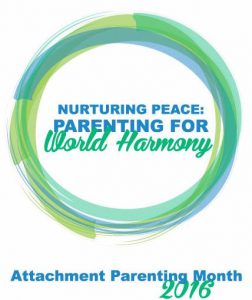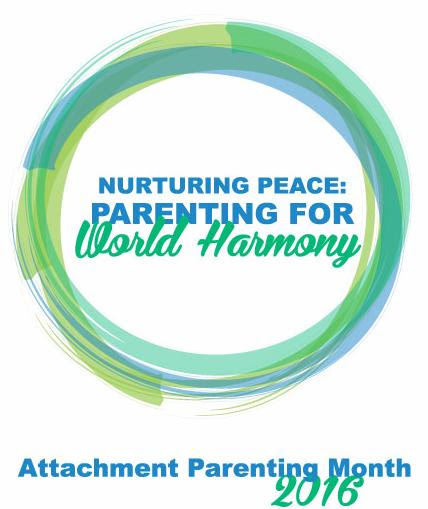 We, as a society, have to change the way we live.
We, as a society, have to change the way we live.
It’s just that simple, and just that hard.
We are shocked nearly every day by news of another seemingly senseless, violent act. We have names for the big ones — Columbine, Sandy Hook, Omaha mall shooting, Dallas — helping us remember the victims and helping us process the overwhelm of confusion, sadness, anger, and the inexplicable that we felt when we found out. It’s getting harder to name these shootings, stabbings, even bombings — there’s just too many of them, happening too frequently, and worse of all, it’s becoming almost commonplace to hear about them. We are desensitizing.
Except for in war, or in other chronically unsettled parts of the world, there seemed to be a long period of time when we just didn’t hear of these types of events happening to Americans. Perhaps there were more acts of violence in schools, workplaces, and communities before Columbine in 1999 and the news at the time just didn’t pick up on them?
But I have a different theory. Our culture has changed. Society is far less accepting of violent tendencies. We are appalled to hear stories of domestic violence in homes, and rightly so. No one deserves to live in an unsafe home. We all have dignity, and women should be treated as equals to men. We are working toward more nurturing relationships and positive discipline toward our children. Fewer teachers are allowed to harshly treat students that frustrate them. Overall, we cannot go around instilling fear in one another as an every day part of life. As it should be.
Except that while there are these widespread expectations to treat one another with respect, there has been less available instruction in how to do that. There is so much more support today for parents, teachers, couples, employers, and others traditionally in positions of authority in relationships. And we, as a society, are finding ways to transcend the existing gaps at a rapid pace, with such ideas as mindfulness in schools rather than issuing detention and offering free positive discipline education at local API Support Groups.
But there was a gap of widespread support that spanned at least 1 generation. From the time when the Columbine school shooting rocketed through the news, to now when cry-it-out sleep training is being openly debated rather than just merely accepted as the norm — reflecting the huge change we, as a culture, are having on the idea of relationship — there was 1 or 2 generations of individuals who were transitioning from the “old” way of relating — hierarchical and fear-based authority — to this “new” way: collaborative, emotionally literate, and focused on problem-solving. That’s a big leap from the old to the new way, and all leaps need support to bridge the gap.
We are steadily closing that gap. Nurturing parenting and related practices — like mindfulness, emotion coaching, collaborative work environments, healthy conflict resolution, nonviolent communication, overall questioning the status quo — are coming from all directions, not only from Attachment Parenting International (API) but also schools, workplaces, health care providers, community leaders, and other major sectors of society. We’re getting ideas we can put into practice at work, home, on the road, and even in the grocery store about how we can relate to one another better and resolve disagreements peacefully. This idea of living together as a nurturing community is becoming holistic.
But still we hear of these awful incidents of kids killing kids, coworkers killing coworkers, strangers killing strangers. If we thought Columbine was confusing, what do we think now as our cultural acceptance of nurturing and peaceful conflict resolution is taking hold. If this doesn’t work, what will?
We then go on to blame the news media, access to guns, leniency in sentencing, racism, politics, mental illness, and so on. The truth is, these big problem areas — like violence in society — are much bigger than a single factor, or even a few factors. It is difficult to unravel the causes, because the factors that contribute to each one seem different and ever-shifting.
The undertone to all of these is that the perpetrator in each case saw violence to be his or her best opportunity at the moment. It might have been a last resort in many cases, but it was the best option of what was left in that person’s mind. Exactly why that was the best option at the time, we probably will never know. We can speculate, but that’s only as good as guessing.
 But we do know that violence has to be planted in a person’s mind as an acceptable option, in whatever situation. Babies aren’t born violent. They are born wired to seek connection. People have to learn violence, which begins as disconnection. They learn to detach as a survival mechanism when their needs aren’t meant. There are various degrees of this, as we see in insecure attachment research, and definitely few insecurely attached children grow up to choose violence that makes the news. But that detachment is the first step to accepting violence as an option at all.
But we do know that violence has to be planted in a person’s mind as an acceptable option, in whatever situation. Babies aren’t born violent. They are born wired to seek connection. People have to learn violence, which begins as disconnection. They learn to detach as a survival mechanism when their needs aren’t meant. There are various degrees of this, as we see in insecure attachment research, and definitely few insecurely attached children grow up to choose violence that makes the news. But that detachment is the first step to accepting violence as an option at all.
I believe that we, as individuals, are not inherently violent but that it is learned. If it were so that we are innately violent, we could not be moving toward a more nurturing culture as we are.
 But our culture does have its leftovers from previous generations’ perspectives on relationship, and those leftovers are most often seen — not in the news of mass killings that we are increasingly seeing — but more in our homes, behind closed doors, when conflict arises between couples and between parents and children. Those leftovers are there when parents yell at, emotionally withdraw, or strike their children in the name of “discipline.” Those leftovers are there when babies begin life with crying it out, learning that their biological need for connection will be ignored.
But our culture does have its leftovers from previous generations’ perspectives on relationship, and those leftovers are most often seen — not in the news of mass killings that we are increasingly seeing — but more in our homes, behind closed doors, when conflict arises between couples and between parents and children. Those leftovers are there when parents yell at, emotionally withdraw, or strike their children in the name of “discipline.” Those leftovers are there when babies begin life with crying it out, learning that their biological need for connection will be ignored.
There are so many contributing factors to societal violence, but it all does start in the home — with what our children grow up with, learning what is “normal” and what is expected, learning how to “resolve” disagreements and “calm” strong emotions like frustration or disappointment…whether peacefully or with force.
We have to change the way we live, in all areas of our lives, beyond but especially behind closed doors, in order to nurture peace and live in world harmony.
Join us, starting October 1, as API explores this theme through Attachment Parenting Month. World peace begins with peace in the home.
We are parents: We are all in the business of world peace.

